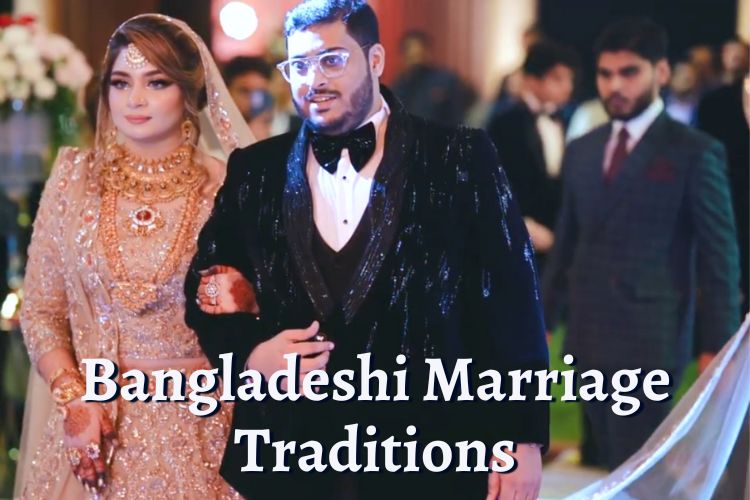In Bangladeshi culture, marriage is more than a union between two individuals; it is a sacred bond that brings two families together. Rooted in a rich historical and cultural context, Bangladeshi marriage traditions revolve around the central role of family. In this blog post, we delve into the significance of family in Bangladeshi marriages, exploring the pre-marriage phase and the role of parents and extended family members in the matchmaking process.
Pre-Marriage Phase: Family’s Role
Within Bangladeshi society, the journey toward marriage involves the active participation of the entire family. Parents and extended family members play a pivotal role in matchmaking, ensuring compatibility and harmony between the prospective bride and groom.
Arranged marriages have long been the norm in Bangladesh. While this term might evoke images of forced unions, it is essential to understand the nuanced evolution of arranged marriages in modern times. Today, arranged marriages are more commonly referred to as “assisted marriages” or “semi-arranged marriages,” where the final decision lies with the individuals involved, albeit with the support and guidance of their families.
The matchmaking process often begins with the involvement of a matchmaker, known as the “Ghotok.” The Ghotok acts as a bridge between the families, facilitating communication and assessing the compatibility of potential matches. They consider family background, education, financial status, and cultural values. The Ghotok’s expertise and reputation in the community are crucial in ensuring successful matches.
Parents and extended family members diligently engage in background checks and research to ensure the potential partner’s suitability. They seek to ensure compatibility not only between the couple but also between the families. This emphasis on family compatibility aims to establish a strong foundation for the union, fostering harmonious relationships beyond the couple themselves.
Family involvement in the pre-marriage phase extends to the exchange of marriage proposals. Families present and discuss proposals through intermediaries, allowing both sides to gather information and make informed decisions. This process involves the immediate family members and includes the extended family, whose opinions and support are highly valued.
In the pre-marriage phase, the family’s role is vital in safeguarding the well-being and happiness of the couple. Their involvement reflects the collective responsibility of the family to ensure a successful and fulfilling marriage. Through active participation, families seek to create an environment where love, trust, and companionship flourish.
Marriage Ceremony: Family’s Significance
The traditional Bangladeshi wedding ceremony is a grand affair that reflects the importance of family. It is a celebration that unites the bride and groom and their families. Elaborate rituals, music, and vibrant attire characterize this auspicious occasion.
Family members hold critical responsibilities in organizing and overseeing the wedding arrangements. They collaborate closely to ensure all aspects of the ceremony, such as venue selection, decorations, and catering, align with the couple’s and family’s preferences. Through their collective efforts, they create an atmosphere of joy and harmony.
Parents, in particular, play a significant role in deciding the ceremony, guest lists, and rituals. Their wisdom and experience guide the couple and their families in adhering to cultural customs and traditions. They ensure that the wedding reflects the values and practices both families cherish.
The wedding ceremony is a testament to the collective nature of Bangladeshi marriages. Both families actively participate, symbolizing the merging of two households. This unity is evident in rituals like the exchange of garlands, where the families come together to bless and support the couple. The wedding becomes a joyous occasion where families strengthen their bonds, fostering long-lasting relationships beyond the couple themselves.
Post-Marriage Phase: Family Bonds
The bride transitions from her paternal family to the groom’s family following the wedding ceremony. This transition, known as “Bidai,” holds deep emotional significance. It is a bittersweet moment as the bride leaves her childhood home and embraces her new role in her marital family. Tears, blessings, and heartfelt farewells mark the Bidai ceremony.
Despite this transition, the involvement of both families continues in maintaining the marital bond. Parents and extended family members provide unwavering support and guidance to the newly married couple. They act as pillars of strength, offering advice and resolving any challenges.
Extended family members, such as grandparents, aunts, and uncles, also play crucial roles in nurturing the couple’s relationship. They provide wisdom, love, and support, creating a solid support system for the couple as they embark on their journey together.
Modern Changes and Adaptations
In the face of globalization and evolving societal values, Bangladeshi marriage traditions have experienced some changes. The younger generation’s aspirations and preferences have influenced the role of the family in marriages. While the importance of family remains, individual choice and compatibility have gained prominence.
The balance between tradition and individual choice is a delicate one. Modern Bangladeshi marriages strive to honor cultural values while allowing individuals to express their desires and preferences. This evolution reflects the dynamism of Bangladeshi society and its ability to adapt to changing times.
Conclusion
In Bangladeshi marriage traditions, family is indispensable from the pre-marriage phase to the post-marriage degree. Throughout this blog post, we have delved into the significance of family in Bangladeshi marriages, uncovering the depth of their involvement and the enduring bonds they create.
Bangladeshi culture places immense value on family, considering it the cornerstone of society. Arranged marriages, guided by the parents and extended family, have long been the norm, intending to foster compatibility and long-lasting harmony. Rooted in religious teachings, particularly Islam, these traditions prioritize both families’ unity and collective well-being.

